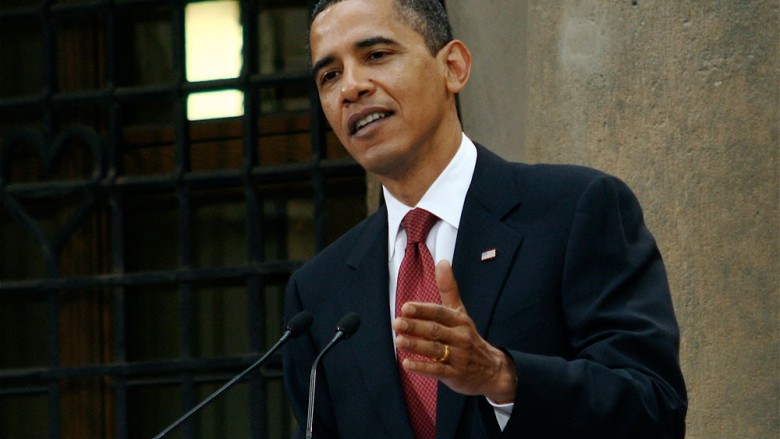Budget agreement forces new look at oft-panned proposals
By Associated Press | October 30, 2015, 6:34 EDT
 Courtesy of Wikimedia
Courtesy of Wikimedia WASHINGTON (AP) — The big budget deal that the White House is so happy about contains a couple of items that President Barack Obama or other administration officials were panning not too long ago.
Obama called one feature in the deal an “irresponsible budget gimmick.” And Energy Secretary Ernest Moniz warily labeled another part “a very slippery slope” to be avoided.
So what changed?
Faced with the prospect of getting more money for administration priorities and ending the threat of a government default, Obama decided to take the deal.
Obama vetoed defense legislation just last week because it padded an emergency war-fighting account with an extra $38.3 billion. That account is not subject to spending limits Congress imposed on itself a few years ago.
The White House routinely referred to the account as a “slush fund” leading up to the veto.
Yet, the budget agreement racing through Congress adds money to that very same account — $16 billion this year, and a similar amount is likely the following year.
Asked why it was no longer a “slush fund” White House spokesman Eric Schultz said the previous effort “didn’t lift the (spending) caps in a way we felt was legitimate,” and didn’t provide relief to non-defense programs and defense programs alike.
But outside groups concerned about federal spending say they still see a “gimmick” designed to get around budget constraints.
“When both sides get what they want from gimmicks, nobody complains about them,” said Ed Lorenzen, a longtime congressional aide now serving as senior adviser at the Committee for a Responsible Budget.
The administration isn’t the only one sidestepping some previous objections to get a deal done.
Republican lawmakers have previously insisted that Congress follow the so-called “Boehner Rule” before agreeing to any debt ceiling increase. Under that rule, laid out by former House Speaker John Boehner, any increase in the debt ceiling had to be accompanied by equal or larger reductions in spending. Obama made it clear that it wouldn’t work this go-around.
Even so, the rule had enjoyed broad support in the caucus and on the Senate side, where 11 GOP senators have co-sponsored a bill sponsored by Republican Sen. Rob Portman of Ohio that would incorporate that trade-off in any future increases in the debt limit.
Members of the Obama administration and lawmakers on both sides of the aisle have also panned selling oil from the Strategic Petroleum Reserve to pay for other basic functions of government. The budget agreement calls for selling 58 million barrels of oil from the reserve over an eight-year period, with the proceeds deposited into the general fund of the Treasury during the same fiscal year in which the sale occurred. The sales would raise about $6.5 billion.
Moniz said earlier this year that any changes in the size of the reserve must be made prudently. “We have seen a recent congressional action to sell SPR oil to fund initiatives that are completely unrelated to energy security, a very slippery slope when our energy security needs are involved, albeit evolving,” he said.
Lawmakers from both parties agreed with him.
“It is not an ATM for new spending,” Sen. Lisa Murkowski, R-Alaska, said during a hearing three weeks ago. “… If we begin to treat it as that, I think we risk selling at the wrong time, at the wrong price, and losing its substantial benefits,” she said.
Sen. Elizabeth Warren, D-Mass., said selling from the reserve is one more bad idea on how to finance government.
“This is a high-cost gimmick to let some people avoid facing the fact that loopholes for millionaires and giant corporations are leaving us with too little money to keep our highways in working order and to fund essential services like medical research,” Warren said.
Obama and Boehner are hailing the budget agreement. Boehner said Congress would have been forced to increase the debt ceiling without additional funding for defense or changes to entitlement programs.
“This will make it easier for the entire Congress for the balance of this year and it’ll make next year a whole lot smoother for the Congress as well.” Boehner said.
“And it’s an actual bipartisan compromise, which hasn’t been happening in Washington a lot lately,” Obama said.
— Written by Kevin Freking
____
Follow Kevin Freking on Twitter at https://twitter.com/APkfreking
Copyright 2015 The Associated Press. All rights reserved. This material may not be published, broadcast, rewritten or redistributed.











